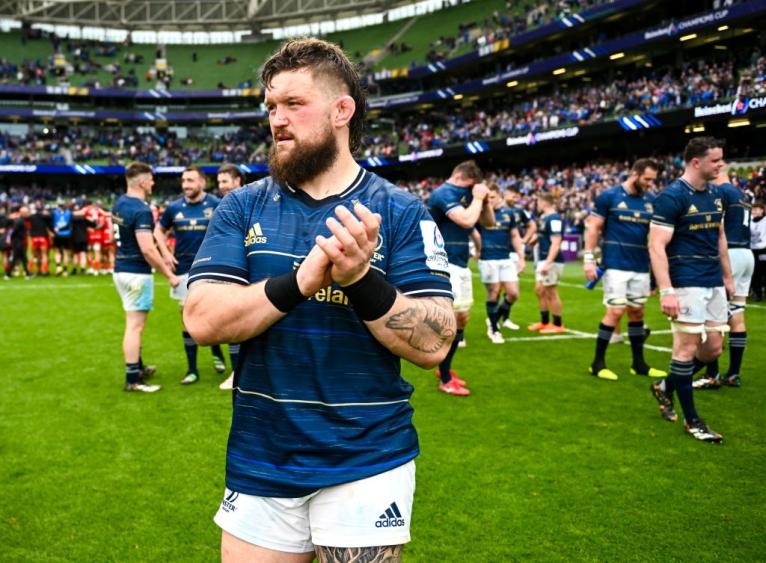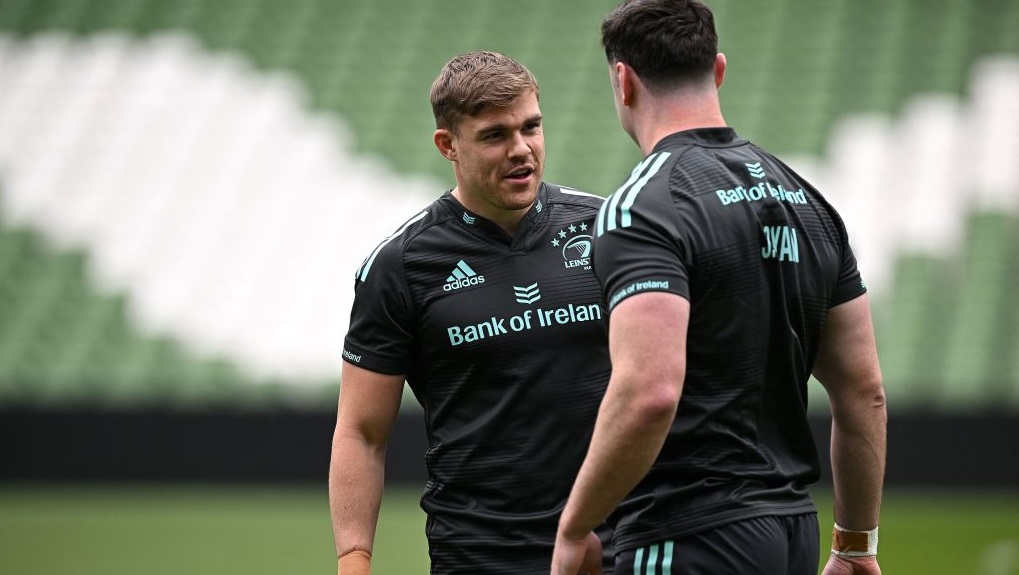Opinion - Why many people hate Leinster

Not all champions are loved by the masses. Floyd Mayweather, Novak Djokovic, Manchester City, the New England Patriots; no matter what some superstar athletes and teams achieve there will always be a sizable portion of haters who’d want nothing more than to see them humbled by their own failure.
Leinster are unquestionably in this camp. To many in Ireland they are the benefactors of a skewed class system that privileges their Dublin base and their vast catchment area. This narrative persists despite Leinster’s concerted efforts to rid themselves of this label.
After claiming a fourth consecutive Pro14 title in 2021, winger James Lowe said he wanted his club to be hated as much as the Crusaders in Christchurch. He argued that perennial success for the Canterbury franchise had fostered well-earned antagonism and Lowe seemed to regard hostility from outsiders as a badge of honour.
But that narrative only works when you’re winning. The reason dynastic organisations and all conquering individuals can absorb the darts that are thrown at them is because they serve as grist to the mill. They help keep the wheels turning in the drive towards even more success. If the flood of titles and accolades dry up, those galactic villains quickly become pantomime scoundrels. What was fear morphs into derision.
Leinster have painted themselves into a corner. After dominating the United Rugby Championship for the second campaign in a row, they once again botched a home semi-final against a team they’d beaten in the regular season.
Last year it was the Bulls who produced one of the best performances by a South African team to turn them over in Dublin. This time it was Munster at the Aviva, a ground that should be for all of Ireland but has been commandeered by one province. All that graft which saw them win 88 per cent of their matches, score 82 tries and concede a miserly 42, all that blood and sweat meant nothing because of one Jack Crowley drop goal.
To be fair to them, that ‘B team’ that went down to their provincial rivals was largely the same as the one that took them to the semi-finals. Still, a heavier contingent of first choicers would have shown their seriousness in the competition and prevented another humiliating premature exit. How can the rest of us not feel that the URC means very little to Leinster and their fans?
“You don’t see many URC or Pro14s or whatever you have on the jersey,” said Leinster’s prop, Andrew Porter, this week. “You see those stars that are on the jersey so that’s the thing we are looking forward to the most this week.”
Porter was of course talking about the embellishments above the badge that are stitched on after a European Champions Cup win. Toulouse have the most with five. Leinster are one behind with four but haven’t added to their collection since 2018. This is the big one. This is the one they covet above all else. They’re playing at home and have arguably the most well-settled match-day 23 anywhere on the continent with 10 players possessing more than 100 caps for the club.
The decision to rest those senior players against Munster will be vindicated should they get the better of La Rochelle. That is no gimme. The French outfit have a formidably imposing pack with some brutally efficient finishers out wide. They’re the defending champions – after beating Leinster at the death last year – and in Ronan O’Gara – their head coach and a two-time winner as a player with Munster – they have a man who will relish the chance to embarrass Leo Cullen’s men on their own patch.

Porter’s comments have amplified the animosity directed at him and his teammates. And rightly so. It is arrogant to dismiss a tournament as inferior without having won it. Yes, they waltzed through a series of Pro14s in second gear, but the introduction of the South Africans means that it is an entirely different competition, not merely a rebranded one.
Leinster’s attitude might be regarded by some ultra cynics as disdain. A less harsh view would simply point out that there is a natural hierarchy of values. Either way, it would be taken more seriously if Leinster had bossed the competition. Their failure to do so proves that they no longer have an inalienable right to field weakened teams as they sleepwalk over their compatriots on the British and Irish Isles.
The South African teams have reshaped northern hemisphere rugby. They’ve raised the standard of a league that was streets behind the English Premiership and the French Top 14. It’s no coincidence that 50 per cent of the teams that progressed from the group this year toil in the furnace that is the URC.
Porter’s assertion feels further out of place given the groundswell of enthusiasm in South Africa. It took less than three hours to sell out the 55,000 seater Cape Town stadium. They’d have packed in even more if the space was available The Stormers’ title defence clearly matters.
Having made the controversial choice to leave Super Rugby to unite with teams in a different hemisphere, the onus was on the South Africans to earn their keep. They’ve done just that. Another win for the Stormers would not only cement their status as one of the best club sides in South African rugby history but also serve as an ideal launchpad for a Champions Cup assault next season.
There will be few fans in South Africa supporting Leinster on Saturday. La Rochelle are an infinitely more likeable organisation. But that is only part of the equation here.































